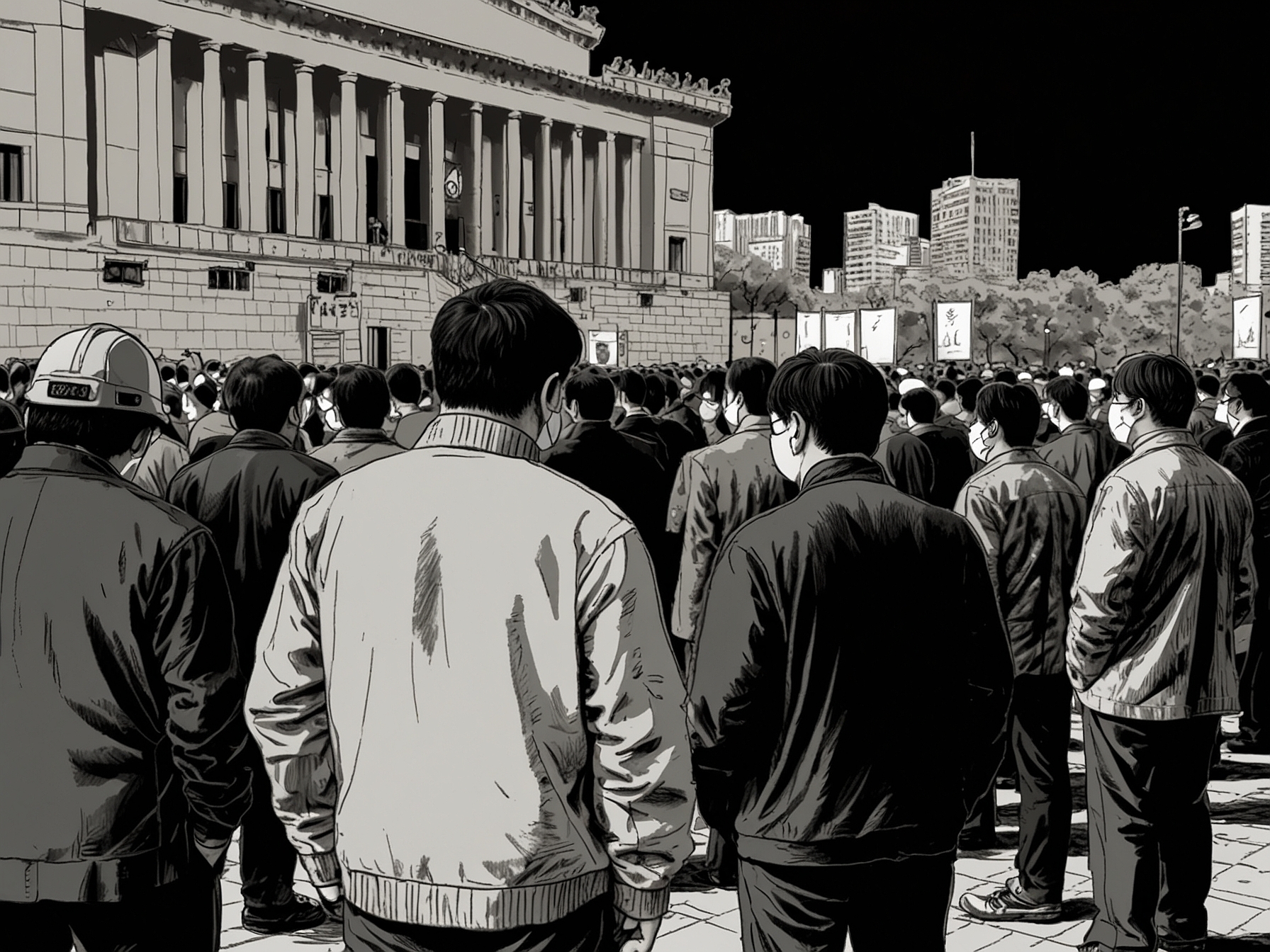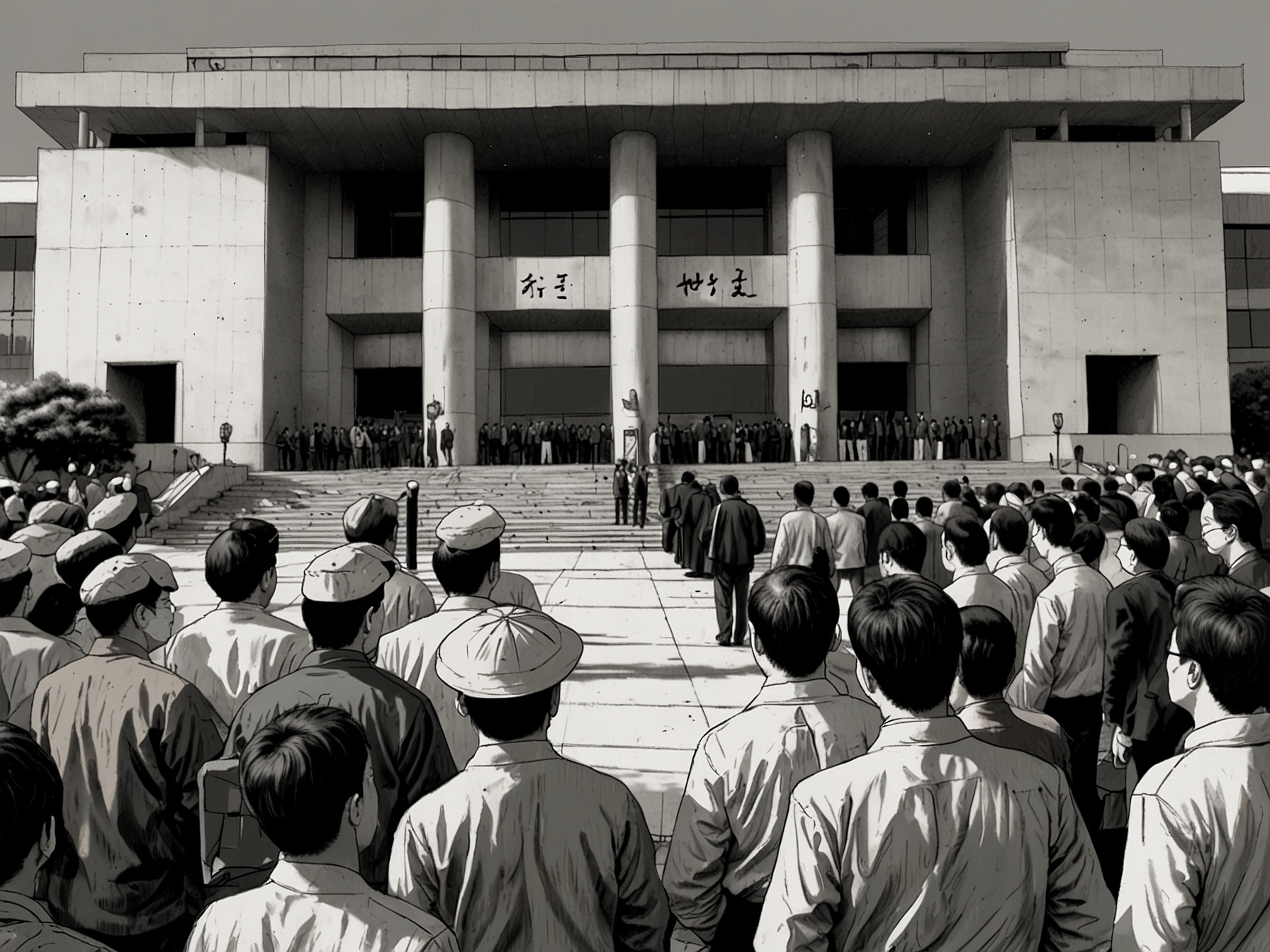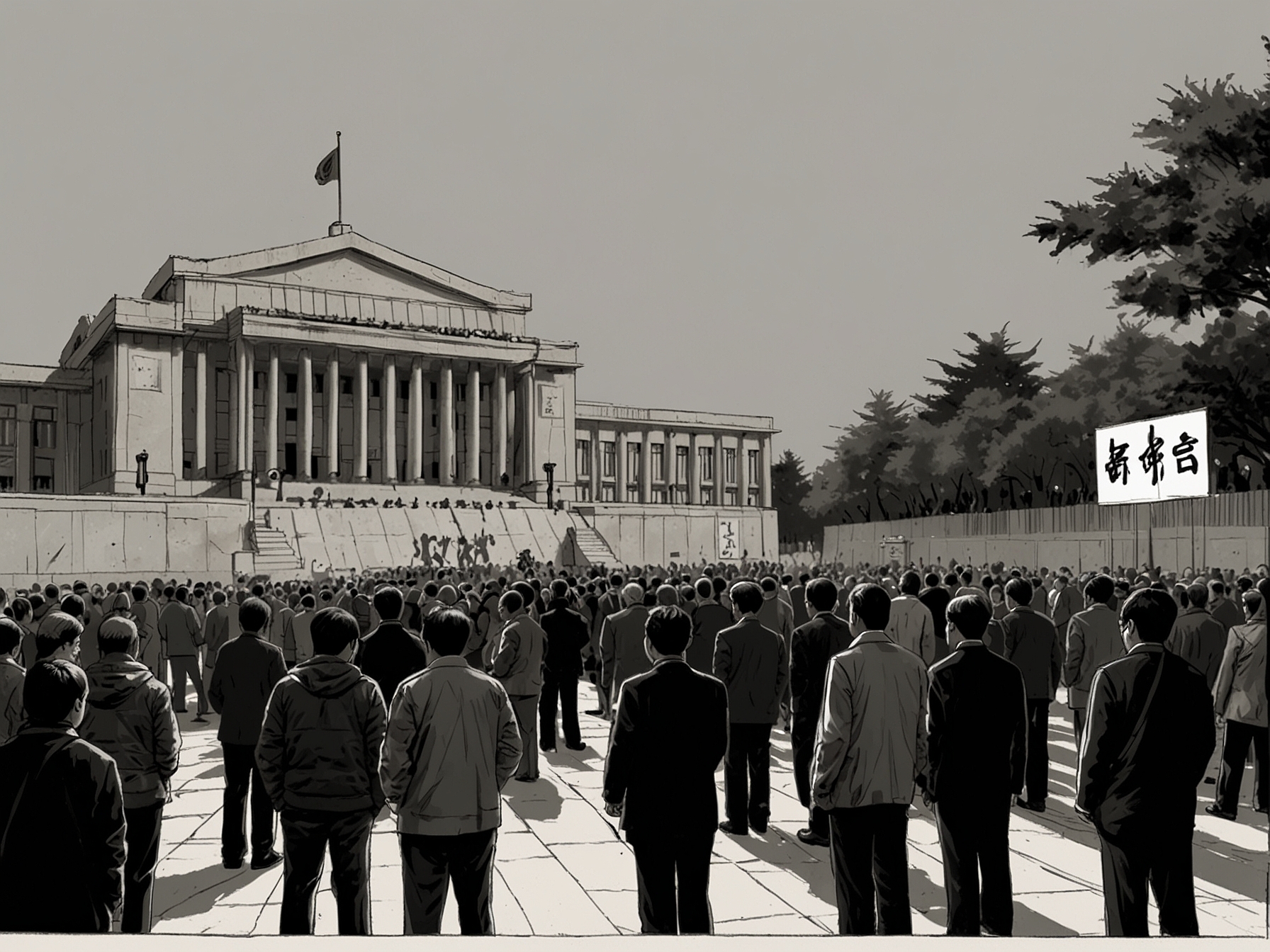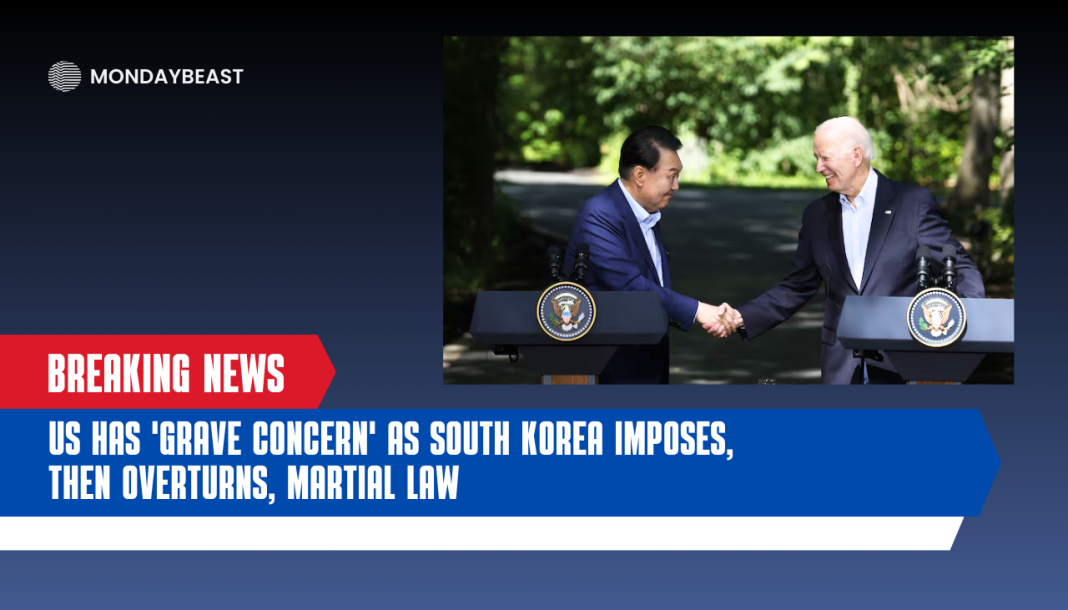In a stunning political twist, South Korea’s President Yoon Suk Yeol declared martial law. This sudden act caught many off guard, including U.S. officials. How did we get here? It raises vital questions about democracy.
The White House, Pentagon, and State Department shared concerns. They emphasized the importance of the U.S.-South Korea alliance. But the lack of communication was glaring. Was it a breach of trust?

The Trump administration marked the beginning of a rocky relationship between Yoon and Biden. However, Yoon was seen as one of Biden’s strongest allies in Asia. As Biden traveled in Angola, he learned about the martial law declaration. His response, while cautious, revealed a deeper worry.
As Deputy Secretary Kurt Campbell expressed, there is “grave concern” in Washington. Yet, the U.S. refrained from condemning Yoon’s move. Instead, officials hoped for a quick resolution, demonstrating their delicate position. Why stay muted? Perhaps they feared escalating tensions.
Hours after Yoon’s declaration, legislators sprang into action. Amid protests, they met at the National Assembly. In a powerful display of democracy, they voted unanimously to end martial law. This moment was electric. Could the essence of democracy shine through?

President Yoon quickly complied, lifting his martial law order. The withdrawal of troops signified a return to normalcy. Yet, what does this victory say about his leadership? Navigating political divisions is a complex task.
Retired Rear Adm. Mark Montgomery called this a “bullet dodged.” His view is sobering. South Korea faces external pressures from North Korea and China. Internally, challenges also loom large. Can democracy withstand these trials?
As Montgomery suggests, South Korea is a “beleaguered democracy.” The resilience of its democratic institutions is essential. Political strife can threaten them. What lessons does this hold for other democracies?

President Biden’s focus on promoting democracy abroad is significant. The relationship with South Korea could shape regional dynamics. But how does this martial law episode fit into the bigger picture?
The alliance, with nearly 30,000 U.S. troops stationed, is crucial. Yet an aura of uncertainty remains. Amid Yoon’s political backlash, how stable is this partnership?
As South Korea tries to move past martial law, the implications are profound. It’s a reminder of the fragility of democracy. Citizens must stay engaged and vigilant. For how long can they stand firm against authoritarian impulses?
In closing, this situation reminds us that governments can pivot on a dime. The prayers of many went unanswered during that turbulent night. Democracy is a constant battle, but its fight is worth every effort.




